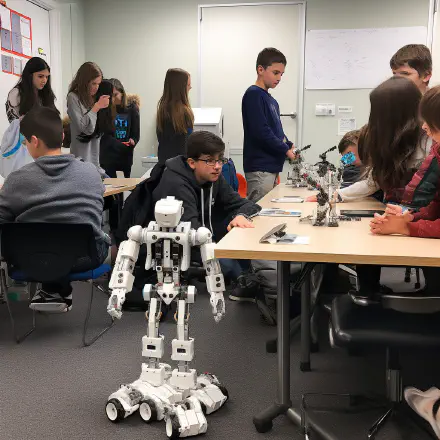
Introduction
In the fast-paced business world, knowledge retention is crucial for managers to succeed. The ability to retain and apply knowledge is essential for managing teams, making informed decisions, and achieving organizational goals. However, traditional training methods often fail to produce effective results, leaving managers searching for new strategies to streamline their training programs.
The challenges of traditional training methods are numerous. One of the biggest obstacles is the inability to customize training programs according to individual learning needs. Additionally, large amounts of information presented in one session can result in information overload and lead to low retention rates. Therefore, it’s essential to find an effective way to impart knowledge and ensure retention.
The good news is that streamlining your training program can help overcome these challenges and even offer several other benefits. A simplified training program enables managers to assess knowledge gaps, create customized learning plans, and provide ongoing support. It also fosters an environment where continuous learning and skill enhancement become a part of the organizational culture.
In this guide, we’ll explore the importance of knowledge retention for managers and examine the benefits of streamlined training programs. We’ll also provide tips on the training process and share strategies for maintaining knowledge. Finally, we’ll discover how measuring and evaluating your training program can help you celebrate success and motivate your team. Let’s get started!
The Training Process
To ensure that your team is performing at their best, it’s crucial to assess their current knowledge and identify areas where improvement is needed.
Assessing Your Team’s Current Knowledge
To assess your team’s current knowledge, you can use quizzes, surveys, or assessments to gauge their understanding of specific topics or concepts related to their job responsibilities. This process helps you identify knowledge gaps and areas where your team members need more training.
Identifying Knowledge Gaps
Once you’ve assessed your team’s current knowledge, you can identify areas where your team members need additional training. This process helps you create a tailor-made training program that addresses the specific needs of each team member.
Creating a Custom Training Program
Creating a custom training program involves creating a curriculum and selecting the appropriate tools and resources. The training program should be designed to help your team members acquire new skills and knowledge that align with the organization’s goals and objectives.
Implementing the Program Effectively
When implementing the training program, it’s essential to communicate clearly and frequently with your team members. This process helps them understand what is expected of them and how the training program is intended to help them. Additionally, it’s vital to choose the appropriate training delivery methods that meet your team’s individual learning needs.
Overall, an effective training program is an essential element of developing high-performing teams. By effectively assessing your team’s current knowledge, identifying knowledge gaps, creating a customized training program, and implementing the program effectively, you can improve your team’s overall performance and achieve better results.
Strategies for Maintaining Knowledge
As a manager, it’s important to recognize that the training process is ongoing. Once your team has completed the training program, it’s important to have strategies in place to ensure that the knowledge they’ve gained is maintained and utilized effectively on the job. Here are some strategies for maintaining knowledge:
Providing ongoing support for team members
One effective strategy for maintaining knowledge is to provide ongoing support for team members. This could include regular check-ins with team members to ensure they are using the knowledge gained during the training program effectively. It could also involve creating a mentorship program, where team members with more experience can provide guidance and support to those who are just beginning to implement new knowledge.
Encouraging continuous learning and development
Another strategy for maintaining knowledge is to encourage continuous learning and development. This means creating a culture that values learning and encourages team members to seek out opportunities to grow their knowledge and skills. This could involve providing access to resources such as books, online courses, and conferences. It could also involve offering incentives for team members who complete additional training or take on new challenges.
Utilizing effective knowledge management tools
A third strategy for maintaining knowledge is to utilize effective knowledge management tools. This includes creating a knowledge management system that allows team members to easily access the information they need to perform their jobs effectively. It could also involve creating a knowledge base that includes information on best practices, standard operating procedures, and other relevant information. By having these resources readily available, team members can quickly access the information they need to perform their jobs effectively.
In conclusion, it is important to remember that the training process is not a one-time event. By utilizing these strategies for maintaining knowledge, you can ensure that your team is able to utilize the knowledge gained during the training program effectively on the job.
Measurement and Evaluation
Once you have created and implemented your custom training program, it’s important to measure and evaluate its effectiveness. This will help you to identify any areas that need improvement and make adjustments accordingly.
Tracking Progress
Regularly tracking progress is essential to evaluate the effectiveness of your training program. One way to do this is through quizzes or assessments to test team members’ knowledge. This will help you to identify areas where your team is excelling or struggling. You can also keep track of participation and completion rates to monitor engagement with the program.
Making Adjustments
Based on your evaluation, you may need to make adjustments to your training program. This could include modifying the content or delivery method. It’s important to get feedback from team members regarding what they find helpful and what needs improvement. You can also involve subject matter experts to provide additional insights and recommendations.
Celebrating Successes
Celebrating successes is an important part of maintaining motivation and engagement in the training program. When team members successfully complete the program or show improvement in their knowledge, acknowledge and celebrate their achievements. This could be in the form of recognition in team meetings or rewards such as certificates or gift cards.
Maintaining Motivation
It’s important to keep team members motivated to participate and engage in the training program. Throughout the program, provide positive reinforcement and encourage continuous learning and development. This could include providing additional resources or opportunities for skill-building. Consistently reinforce the value of the training program and how it will benefit team members in their roles.
Overall, measuring and evaluating the effectiveness of your training program is crucial to ensure its success. By monitoring progress, making adjustments, celebrating successes, and maintaining motivation, you can build a team culture of continuous learning and development.
Conclusion
In conclusion, it is vital for managers to prioritize knowledge retention within their teams. By streamlining the training process, you can ensure that your team is acquiring, retaining, and applying information effectively and efficiently.
Traditional training methods present challenges such as information overload, poor retention rates, and high costs. However, a streamlined training program can save time and money while achieving better results.
To achieve success with your training program, it is essential to assess your team’s current knowledge, identify knowledge gaps, create a custom training program, and implement it effectively. Additionally, maintaining knowledge requires ongoing support, continuous learning, and effective knowledge management tools.
Lastly, measuring and evaluating your training program’s progress and effectiveness is critical. This process allows you to make adjustments as necessary and celebrate successes while keeping your team motivated.
As a result, by investing in knowledge retention, managers can improve their team’s performance and overall organization’s success. Streamlining your training program today can empower your team to achieve their full potential while staying competitive in today’s dynamic business environment.




